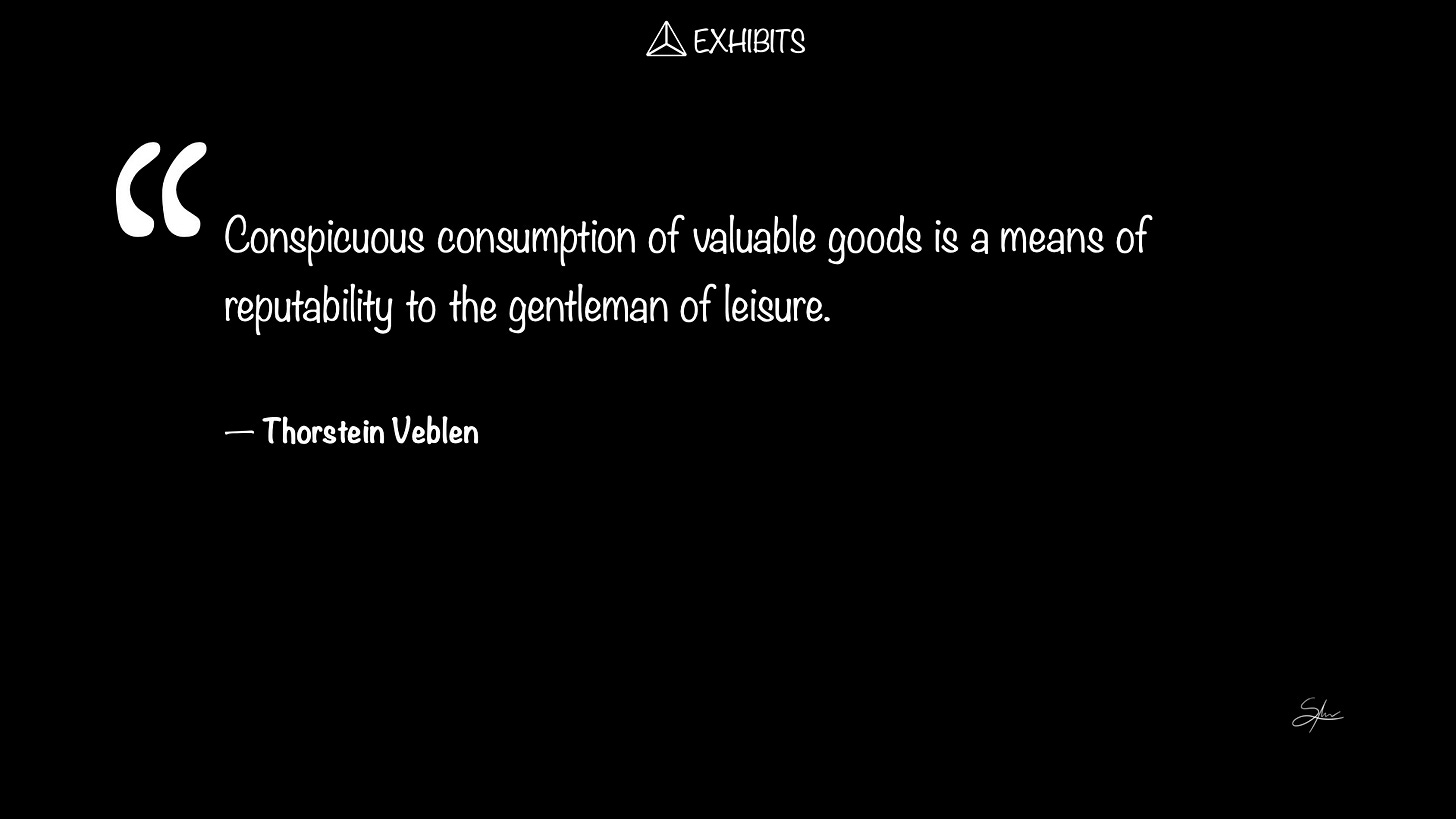Atomic Knowledge #22: Veblen Effect
In some situations consumers often view higher prices as a sign of higher quality and status, and the increased price makes the product more exclusive and desirable.
⏱️ Reading Time ≈ 1 min
The Veblen Effect is an economic concept that describes a situation where the demand for a particular product (known as a Veblen good) increases as its price increases, contrary to what standard economic theory would predict. This phenomenon is named after the American economist and sociologist Thorstein Veblen, who first identified this counterintuitive behavior.
In typical market behavior, higher prices usually lead to a decrease in demand. However, the Veblen Effect captures a scenario where consumers perceive higher-priced goods as more desirable, often because of the perceived status, prestige, or exclusivity associated with them. This effect is most often observed in luxury goods and services, where the high price itself is a part of the appeal, serving as a symbol of wealth or social status.
For example, luxury cars, designer clothes, and high-end watches may become more desirable precisely because they are expensive. Consumers who buy these products often do so not just for their functional value, but to signal their wealth and status to others.
The Veblen Effect is a type of conspicuous consumption, where people buy expensive items to display wealth rather than for practical reasons. It's an important concept in behavioral economics and helps explain certain market behaviors that deviate from traditional economic theory.
👋🏼 Make the most of it! Until next time, S.
Deepen Your Knowledge
Bagwell, Bernheim, 1996 - Veblen Effects in a Theory of Conspicuous Consumption









